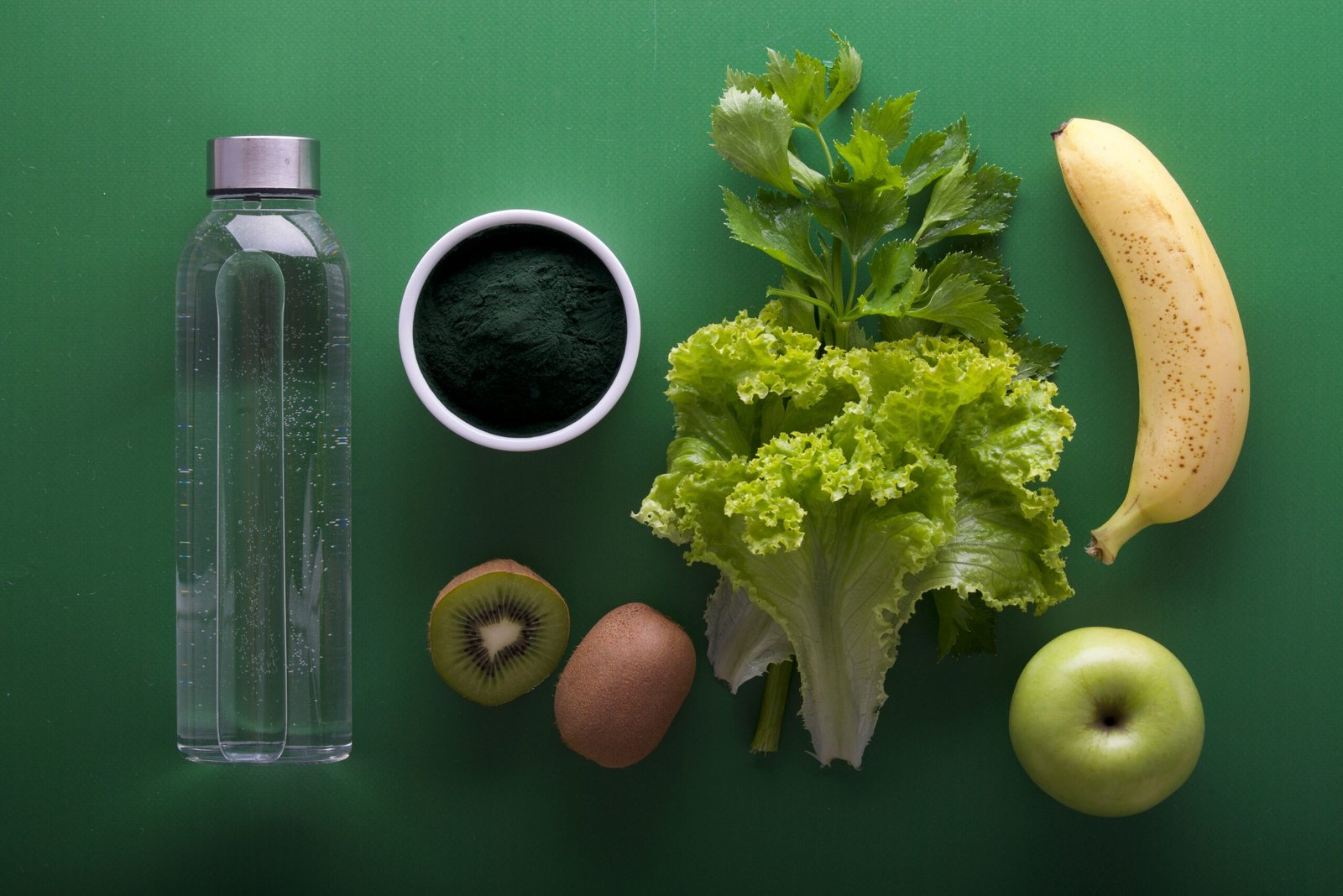Looking to improve your gut health naturally? In today’s world, maintaining a healthy gut is more important than ever. Your gut plays a crucial role in digestion, immunity, and even mental health. This article dives deep into the world of natural probiotics and prebiotics, exploring their benefits, how they work to improve gut health, and the lifestyle habits that can further enhance your digestive wellness. By incorporating these powerful nutrients into your daily routine, you can support a balanced gut microbiome, boost your immune system, and improve overall well-being. Let’s explore the top natural sources of probiotics and prebiotics, and how to make them a part of your life for lasting health benefits.
Understanding Gut Health and Its Importance
Natural probiotics play a vital role in gut health, contributing to the overall functioning and balance of the digestive system. Gut health encompasses various processes that affect digestion, immunity, and even mental health. A well-functioning gut is pivotal for absorbing nutrients, processing waste, and serving as the body’s first line of defense against pathogens. At the heart of gut health lies the gut microbiome, a complex ecosystem of trillions of microorganisms that play a crucial role in maintaining this delicate balance. These microorganisms help break down food, synthesize essential vitamins, and support the immune system, illustrating the intricate connection between gut health and overall wellness.
When the gut microbiome is in balance, it supports a healthy digestive process, enabling the body to extract optimal nutrients from foods consumed. In contrast, an imbalance in gut flora—often referred to as dysbiosis —can lead to a host of health issues, including digestive disorders, autoimmune diseases, and mental health challenges. Recent studies have shown a significant correlation between gut health and mental well-being, suggesting that the state of our gut can influence mood and cognitive functions. This relationship is due to the gut-brain axis , which connects the gut and the brain, highlighting the importance of maintaining a healthy gut ecosystem.
Several factors can negatively impact gut health, including poor dietary choices, high-stress levels, and sedentary lifestyles. Diets rich in processed foods, sugars, and unhealthy fats can diminish the diversity of gut flora, leading to dysbiosis. Chronic stress has also been shown to alter gut microbiota composition, exacerbating digestive issues. To mitigate these risks, it is essential to focus on nurturing gut health through natural means, such as consuming probiotics and prebiotics from whole foods rather than relying on synthetic supplements.
The Role of Natural Probiotics and Prebiotics in Gut Health
What Are Probiotics?
Probiotics are live beneficial bacteria that contribute positively to gut flora. These microorganisms help restore the natural balance of the gut microbiome, which can be disrupted by factors such as poor diet, stress, or antibiotic use. Instead of purchasing probiotic supplements, consider incorporating fermented foods into your diet. These foods provide live microorganisms that contribute positively to gut flora and promote digestive wellness.
Some of the best natural sources of probiotics include:
Yogurt : Choose plain, unsweetened varieties with live cultures.
Kefir : A fermented milk drink packed with beneficial bacteria.
Sauerkraut : Fermented cabbage that provides a tangy probiotic boost.
Kimchi : A Korean fermented vegetable dish known for its spicy flavor and gut-friendly properties.
Miso : A fermented soybean paste used in soups and sauces, offering both flavor and gut benefits.
Incorporating these foods into your diet can help alleviate symptoms of digestive disorders, improve gut function, and boost immune response.
What Are Prebiotics?
Prebiotics are non-digestible fibers that serve as food for probiotics, promoting their growth and activity. Instead of relying on prebiotic supplements, incorporate the following fiber-rich foods into your diet:
Chicory Root : High in inulin, a natural prebiotic fiber.
Garlic and Onions : These flavorful vegetables are rich in prebiotic compounds.
Bananas : Especially when slightly underripe, bananas provide a good source of prebiotics.
Asparagus : A versatile vegetable that supports gut health.
Leeks : Similar to onions, leeks are packed with prebiotic fibers.
Whole Grains : Oats, barley, and other whole grains are excellent sources of prebiotics.
These foods enhance bowel regularity, improve nutrient absorption, and create an environment conducive to optimal digestive health.
Why Choose Natural Sources Over Supplements?
While gut health supplements are often marketed as convenient solutions, they come with several limitations. Many supplements lack transparency in their ingredient sourcing and manufacturing processes, and their effectiveness can vary depending on factors such as potency, viability, and strain specificity. Additionally, some supplements may contain additives or fillers that could counteract their intended health benefits.
On the other hand, natural sources of probiotics and prebiotics offer a holistic approach to gut health. Whole foods not only provide beneficial bacteria and fibers but also deliver essential vitamins, minerals, and antioxidants that support overall wellness. Moreover, consuming fermented foods and fiber-rich ingredients allows you to enjoy diverse flavors and textures, making it easier to maintain a balanced and enjoyable diet.
Lifestyle Changes for Optimal Gut Health
Maintaining optimal gut health requires more than just consuming probiotics and prebiotics. A multifaceted approach that includes dietary modifications, regular physical activity, adequate hydration, and effective stress management techniques is essential for nurturing a balanced gut microbiome.
Dietary Modifications
Incorporating a diverse range of whole foods is fundamental to better digestion. A diet rich in fruits, vegetables, whole grains, lean proteins, and healthy fats can provide the essential nutrients required for digestive wellness. Fermented foods such as yogurt, kefir, sauerkraut, and kimchi offer probiotic benefits that foster a healthier gut environment. Additionally, minimizing the intake of processed foods, added sugars, and artificial ingredients is crucial, as these can negatively impact gut flora.
Regular Physical Activity
Exercise is another vital component for maintaining gut health. Regular physical activity promotes optimal digestion and aids in the movement of food through the digestive system, reducing the risk of constipation. Activities like walking, yoga, or cycling for at least 150 minutes a week can enhance gut function and overall well-being.
Adequate Hydration
Hydration cannot be overlooked when considering digestive well-being. Drinking sufficient water helps keep the gut lubricated, making it easier for waste to pass through the intestines. Establishing a routine to drink water consistently throughout the day will facilitate optimal digestion.
Stress Management
High-stress levels can disrupt the gut microbiome and lead to gastrointestinal issues. Techniques such as mindfulness, meditation, and deep-breathing exercises can be beneficial in reducing stress and enhancing gut health.
Scientific Evidence Supporting Natural Probiotics and Prebiotics
Numerous studies have demonstrated the benefits of consuming probiotics and prebiotics from natural sources. For instance, research published in reputable journals highlights that fermented foods can significantly reduce symptoms associated with irritable bowel syndrome (IBS) and other gastrointestinal disorders. Similarly, prebiotic-rich foods have been shown to enhance bowel regularity, increase stool frequency, and improve overall gut function.
Moreover, recent studies have revealed that a balanced gut microbiome can positively impact mental health and systemic immunity. The gut-brain axis indicates that a healthy gut can stabilize mood and reduce anxiety levels. Additionally, consuming natural probiotics and prebiotics can bolster immune response, reducing the incidence of infections through modulation of gut-associated lymphoid tissue (GALT).
Common Myths About Gut Health
The conversation surrounding gut health is often clouded by myths and misconceptions. One prevalent myth is that all probiotics are created equal. In reality, the quality and effectiveness of probiotic strains can vary significantly among products. Another misunderstanding is the belief that gut health interventions are only necessary for certain demographics, such as the elderly or those with existing digestive disorders. In fact, individuals of all ages and activity levels can benefit from supporting their gut flora through natural means.
Conclusion and Recommendations
In conclusion, prioritizing gut health through natural sources of probiotics and prebiotics can pave the way for a healthier lifestyle. By incorporating fermented foods and fiber-rich ingredients into your diet, you can nurture a balanced gut microbiome and enhance digestive wellness. Combine these dietary choices with lifestyle changes such as regular exercise, adequate hydration, and effective stress management techniques to create a comprehensive approach to gut health.
Always consult with a healthcare professional if you have specific health concerns or conditions. By focusing on natural sources and holistic lifestyle changes, you can achieve improved digestive wellness and overall health outcomes.
FAQs About Natural Probiotics and Gut Health
What are natural probiotics, and how do they benefit gut health?
Natural probiotics are live beneficial bacteria found in fermented foods like yogurt, kefir, and sauerkraut. They help restore gut balance, improve digestion, and boost immunity.
What foods are the best sources of natural probiotics?
Top probiotic-rich foods include yogurt, kefir, kimchi, sauerkraut, miso, and kombucha. These foods support gut health by introducing beneficial bacteria.
How do prebiotics support gut health?
Prebiotics are fibers found in foods like garlic, onions, bananas, and whole grains. They feed probiotics, promoting a balanced gut microbiome and better digestion.
What is the difference between probiotics and prebiotics?
Probiotics are live beneficial bacteria, while prebiotics are fibers that nourish these bacteria. Both work together to maintain a healthy gut.
Can natural probiotics help with digestion issues?
Yes, probiotics can alleviate bloating, constipation, and irritable bowel syndrome (IBS) by improving gut flora and enhancing digestion.



